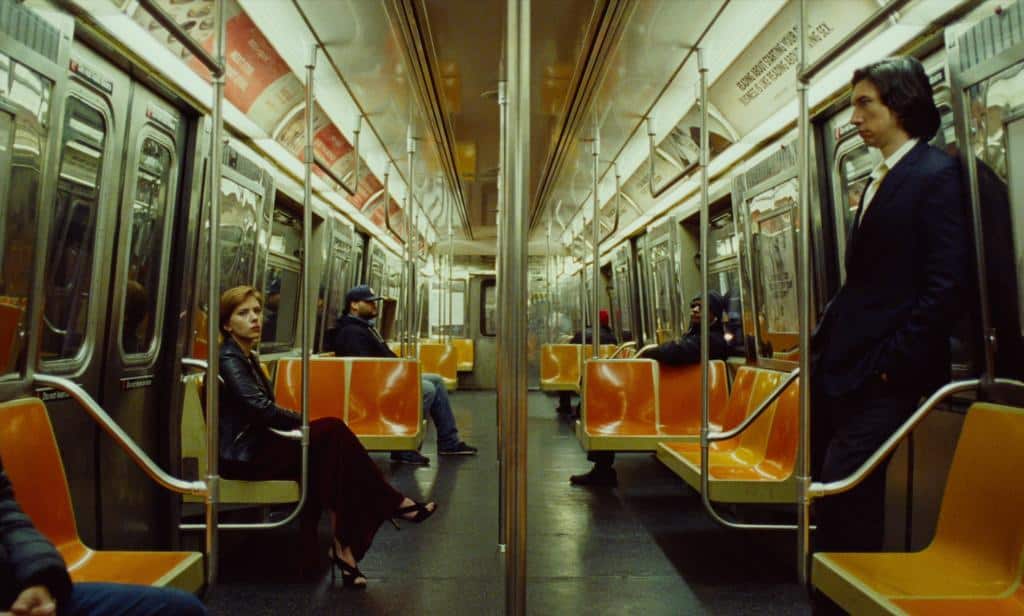“Criminal lawyers see bad people at their best. Divorce lawyers see good people at their worst.”
Alongside this memorable pronouncement from “Marriage Story,” I want to append St. Ignatius of Loyola’s observation that desolation, more than just a feeling, is a movement of the soul that carries us from bad to worse.
“Marriage Story” traces a clear line from a peaceable, though painful, separation to an acid divorce—from bad to worse. It reflects the way desolation induces false narratives, either stressing a list of complaints or entrenching oneself in self-pity. Not only does the film compellingly depict the dissolution of a relationship, it also tracks the shift in the way two people reconstruct the story of their marriage.
Noah Baumbach’s latest film follows the divorce of Charlie (Adam Driver) and Nicole (Scarlett Johansen), whom we first meet living in New York together with their 8-year old son, Henry (Azhy Robertson). Charlie is an avante garde theatre director and Nicole a talented actress who stars in all his plays. While they’ve tried working with a mediator, eventually Nicole opts for a lawyer, Norah (a role for which Laura Dern rightly won the Golden Globe). Legal action brings the tension regnant in their relationship to the surface.
The opening scene is a montage where the camera endearingly follows Charlie and Nicole individually, giving us a glance of their family life. We hear each of them tell us what they love about the other, and the camera tells us exactly what they have in mind. It’s sweet. The device serves as a love letter but also an elegy for the relationship. This is the first narrative we hear about their relationship, the first time a story of their marriage is offered to us.
Opening with this montage proves to be the perfect platform for the story. Baumbach said that the beginning scene captures these “little moments” in their life together. Whereas as a big scene, as he explains, has to move clearly and linearly from beginning to end, we first glimpse Charlie and Nicole’s character in the middle of their ordinary life together, each one taking note of the virtues and idiosyncrasies of the other. Instead of showing the relationship’s decline from its highest moments of rapture, the decline is from its ordinary, little moments of family life.
The opening scene sets up what I thought was the most devastating moment in the movie. Both Charlie and Nicole go to court having hired lawyers whose resolve to win exceeds their own. Each attorney recounts “little moments” that we’ve seen throughout the story, tokens of affection that come out even in the midst of their respective frustration: The two playfully jostling with each other as they install the children’s seat that Charlie forgot to set up; or Nicole, having drunk a little too much wine, stumbling on the stairs after they both read Henry to bed.
But in court, these moments are revised and mobilized for the purpose of branding the other as an unfit parent. Small moments of affection, surfacing even in the midst of the separation, are turned into an indictment. It unties and inverts the opening scene. As the lawyers mercilessly argue, the camera shows Charlie and Nicole from a lower angle on opposite sides of their attorneys, each looking down in shame. That the lawyers know which parts of their relationship to highlight betrays the fact that each one has divulged even the “little moments.” This is the second narrative about their relationship we hear. And watching the shift from the first “story” to the second interrogates the narratives we form about the most intimate part of our lives.
When the attorneys rewrite the story of their marriage in the courtroom, the reference points are factual, only they take on a perspective that neither Charlie nor Nicole assumed when they transpired. It calls to mind Ignatius of Loyola’s caution that the Evil Spirit will use truth against us. We can retell the facts of a happening but falsify the spirit in which they took place. More important than the facts of our life is the spirit which arranges them.
The heartache in the movie is not that a love has died, but that it painfully remains even as Charlie and Nicole become the other’s antagonist. A regretful parting starts to veer in the direction of hatred. Love exists in the film, but the narrative tension revolves around what that love will become, around whether or not the moments that transpired within that love will be remembered outside of it.


